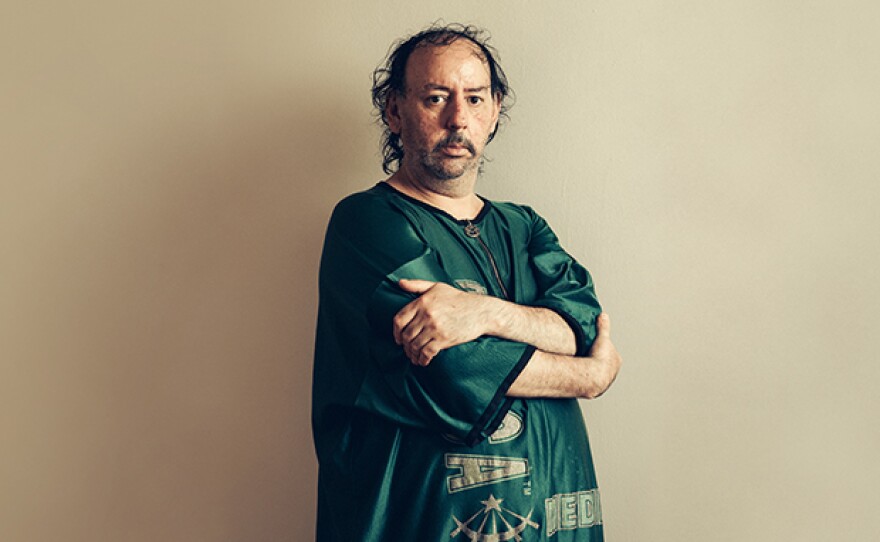—FRONTLINE and ProPublica Examine New York Residents’ Transition From Institution to Independence—
In 2014, a federal judge ruled that New York State had violated the civil rights of people with severe mental illness by allowing them to languish in adult homes – group housing that had been plagued by allegations of abuse and neglect.
The landmark ruling gave a class of about 4,000 adult home residents the chance to move into their own subsidized and supported apartments, have the freedom to cook in their own kitchens, administer their own medication and budget their own expenses with help from private case management agencies.
The ruling was front-page news, but until now, there’s been little known about how the plan to move people from institutions to independence has actually worked out.
On Tuesday, Feb. 26, FRONTLINE and ProPublica go inside New York’s supported housing program in a special investigation called "Right To Fail" – exploring human struggles and the complex debate behind giving people with severe mental illness the right to live independently and succeed on one’s own terms with the right support, but also the right to fail.
Through interviews with mental health experts, caseworkers and health officials involved with the court ruling and the program, as well as people with mental illness trying to live independently, the joint investigation finds that the transition into supported housing has in many instances proven perilous, and even deadly.
Correspondent Joaquin Sapien, along with Director Tom Jennings (“Being Mortal,” “American Terrorist”) and their colleagues, spent over a year investigating how the 2014 ruling has affected formerly institutionalized people living on their own.
“There had been stories already on the bad state psychiatric hospitals and bad adult homes… [but] no one’s really explored what it looks like when people leave,” says Sapien.
The transition to supported housing is overseen primarily by the Office of Mental Health – one of the same government agencies that had been sued over the quality of care in adult homes.
And while the office told FRONTLINE and ProPublica the vast majority of former adult-home residents have thrived in their new homes, they acknowledged that a percentage did not succeed in supported housing.
After repeated questioning, the agency revealed that 39 residents returned to adult homes and 33 had died.
“Right To Fail” closely follows the journey of one 52-year-old man in the supported housing program named Nestor Bunch.
Diagnosed with schizophrenia, Bunch had spent most of his life under some form of supervision, whether in a group home or psychiatric hospital.
His medical assessment noted that he was hearing voices and believed he could heal others telepathically, but based on the 2014 court settlement, none of this disqualified him from living independently.
The film offers a window into how Bunch struggled in the supported housing program. He became suicidal, witnessed the death of a new roommate, was hospitalized multiple times and doctors suspected he was beaten within an inch of his life – yet through it all, continued to say he wanted to live on his own.
“These are not 24-hour supervised settings, nor were they intended to be,” says David Woodlock, the CEO of one of the non-profit agencies that cared for Bunch.
“In order for somebody to have agency, dignity, integrity, they have to be able to make a choice,” says Antonia Lasicki, a supported housing advocate who serves as the executive director of the Association for Community Living. “I tend to take the position of more freedom is better than less freedom, but there are cases where you have to wonder.”
Bunch’s story, and the stories of others profiled in “Right To Fail,” illustrate the extraordinary fragility of some former adult-home residents and the limits of the support they receive – exposing the risks at the heart of the supported housing program, and a system that, for many of the most vulnerable, has ultimately failed them.
Watch On Your Schedule:
Episodes of FRONTLINE become available for streaming on demand at pbs.org/frontline during each broadcast.
Join The Conversation:
FRONTLINE is on Facebook, Instagram, tumblr, and you can follow @frontlinepbs on Twitter. #frontlinePBS
ProPublica is on Facebook, and you can follow @ProPublica on Twitter.
Credits:
A FRONTLINE production with 2over10 Media in partnership with ProPublica. The director, producer and writer is Tom Jennings. The reporter and correspondent is Joaquin Sapien. The executive producer of FRONTLINE is Raney Aronson-Rath.





